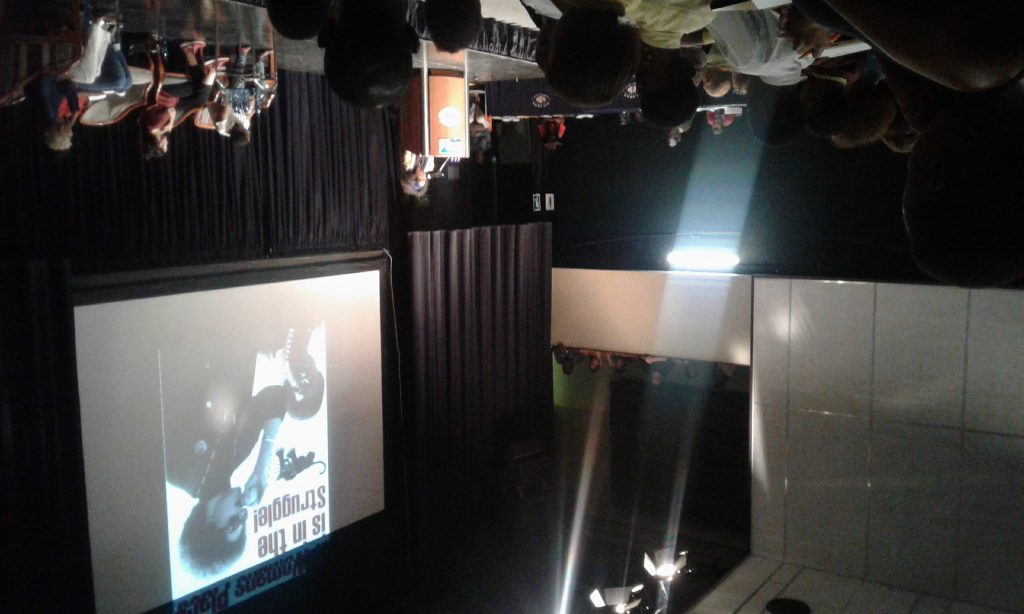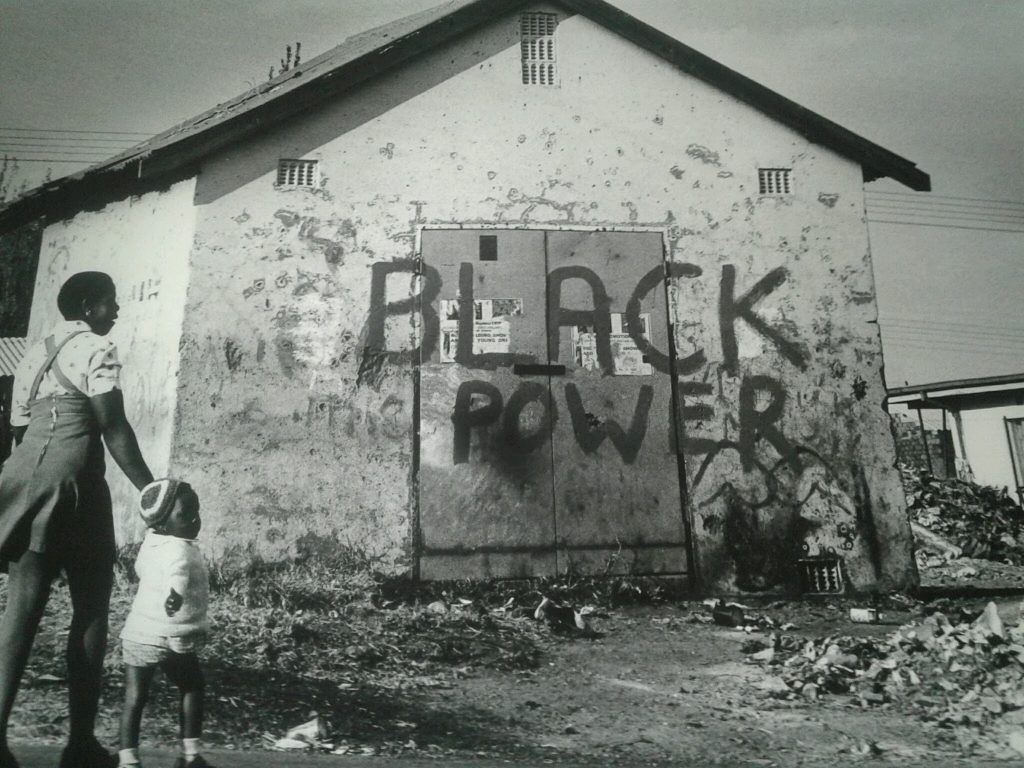On the 8th of March, International Women’s Day, Johannesburg residents were treated to a lecture hosted by the University of Johannesburg at SciBono Diversity Centre in Newtown. The audience was a diverse mix of students, high schoolers, workers, and artists. The lecture panel consisted completely of women, and the main guest speaker was Ericka Huggins, former leading member of the Black Panther Party in the United States, and an activist and educator.
In her address to a packed-to-the-brim auditorium, Huggins opened her lecture with gratitude towards everyone present, and in line with the theme of the day, a gratitude towards all women, because after all “we are all birthed by women”.
Huggins reflected with the audience on her own struggles and experiences as an Black American woman. Huggins grew up in south east Washington DC, and in 1963 at the age of 15, attended a march in Washington organised by Dr. Martin Luther King Jr. This experience touched Huggins deeply, convincing her that she could be part of changing the world for the better. “It was at that moment that I made a vow to dedicate my life to the service of people”.
After high school, Huggins enrolled in Lincoln University, one of the first historically black universities founded during slavery. Speaking of that period, Huggins explained that her “generation had a different take of what transformation meant, and were impatient to get it”. After seeing an advert in the newspaper about the Black Panther Party for Self Defense, she left college to join.
The Black Panther Party (BPP) was a party for oppressed people of the world, and advocated a ten-point programme as a blueprint for revolution. It’s members ranged from students to Vietnam veterans, teachers and former gang members. BPP also catered to the basic needs of their communities, including food, clothing and shelter, because they realised “revolution was never going to ferment when communities are worrying about survival”, Huggins said.
The US government recognised the BPP as a great threat to the functioning of the capitalist system, and sought to ‘neutralise’ the movement it had become. This resulted in the assassination of countless young black activists, including Huggins’ husband, which left her a young widow and single mom. Huggins, like many other BPP members, was arrested and detained for two years as part of the US government’s strategy.
BPP inspired similar movements across the world, and more broadly greatly influenced not only the politics of the time, but also the artistic and cultural movements around it. Now, more than 50 years after the BPP was formed to fight against the white supremacist capitalist system, BPP greatly influenced the Black Lives Matter (BLM) movement. According to Huggins, the three young, black, queer women who founded BLM reached out to BPP to learn from the party’s experiences decades earlier.
After her lecture, Huggins had a question and answer session, where many interesting and engaging issues were raised and put forth for response. These ranged from her views on gender inequalities within the BPP to what has become a major concern for many South Africans; the Land question.
For Huggins, this sharing of knowledge and learning from each other’s experiences is very important. “Generations need to connect up,” she said. Though “the older generation [provide] a guide, a support… [it is] the youth that will bring about change”.



